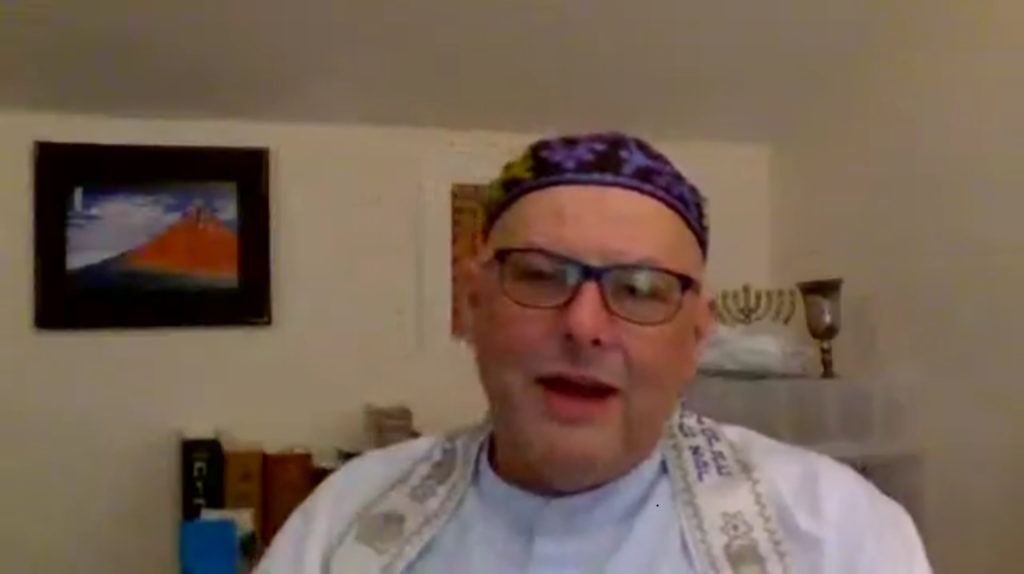After suffering from symptoms of COVID19 our Rabbi, René Pfertzel, returned to leading our Shabbat services online last Shabbat. After thanking members of the community for their work in leading services in his absence and keeping the community together through a variety of online activities, he gave a positive and thought-provoking sermon. An extract appears below:

The peace of the people…
In ancient times, when the Temple was still standing, Jews who wanted to express their gratitude would offer a zevah sh’lamim, a sacrifice of peace. In our Torah portion, it is described as the “offering for the people”, when we want to express our gratitude collectively. Sh’lamim is actually in plural, and means, the peaces, even though in English peace doesn’t appear in the plural form. There is the peace of the people, which has achieved something meaningful, the inner peace of the individual that found ways to be aligned, centred with his/her inner being, and also this peace that we sing at the end of the Amidah: osseh shalom bim’romav, hu ya’aseh shalom aleynu v’al kol Yisrael v’al kol benei Adam. In other words, that peace that is above, and that we try to bring within us, on this plane, every Shabbat, and even every day of our life.
Gratitude and peace as acts of resistance
Gratitude, bringing peace in our world, are almost acts of resistance today. Some masters of old, from other religious traditions, have taught that the world is largely the result of our projections. With our mind, we can change reality, not by an act of magic, but because as human beings, we respond to a situation with what we are, with our inner landscape. Our responses can be ones of fear, anxiety, or anger, and if we are overwhelmed by these emotions, the world will be filled with fear, anxiety and anger. But if we decide to respond with gratitude, peace, and resilience, we will build up in ourselves and in the world peace, gratitude, and resilience.
It is easier to be said than to be experienced. We are constantly invited to give in to negative emotions, channelled by sensationalistic media, politicians who know very well that is easier to rule over people who are afraid than over people who are happy and grounded, and social media who are a sort of echo chamber of the best and the worst of humankind.
We are our thoughts
We need to realize that we are our thoughts. Our ancestors have created a whole liturgical and ritual system to keep their minds in the right direction, and we have inherited their legacy. Performing rituals, taking the time for ourselves when we come together for a service, a festival or a meal, is not a way to please God, but it is a way to pause and to direct our lives in the right direction.
I wish you all a Shabbat of peace and gratitude, a Shabbat of resilience in the face of adversity, and the knowledge that this too shall pass. We are invited to learn from an exceptional situation what really matters to us. Let’s not miss this opportunity to grow and to learn.
